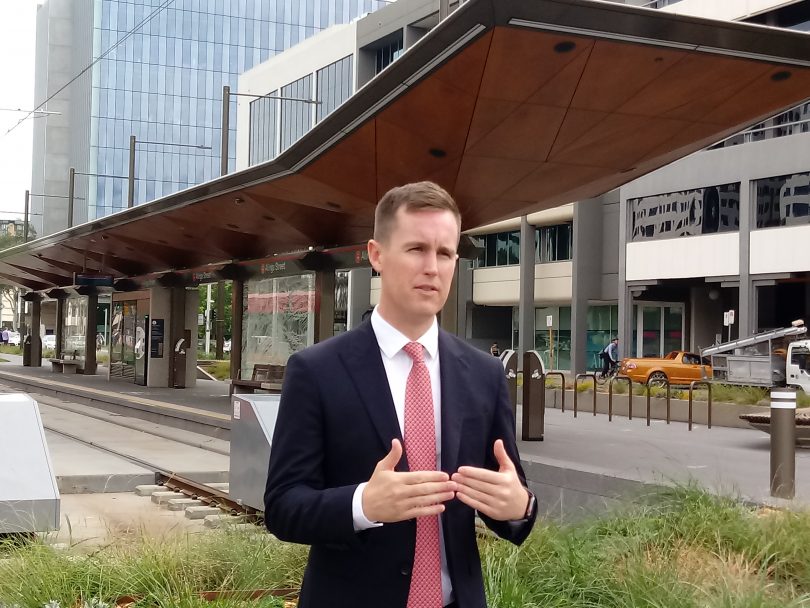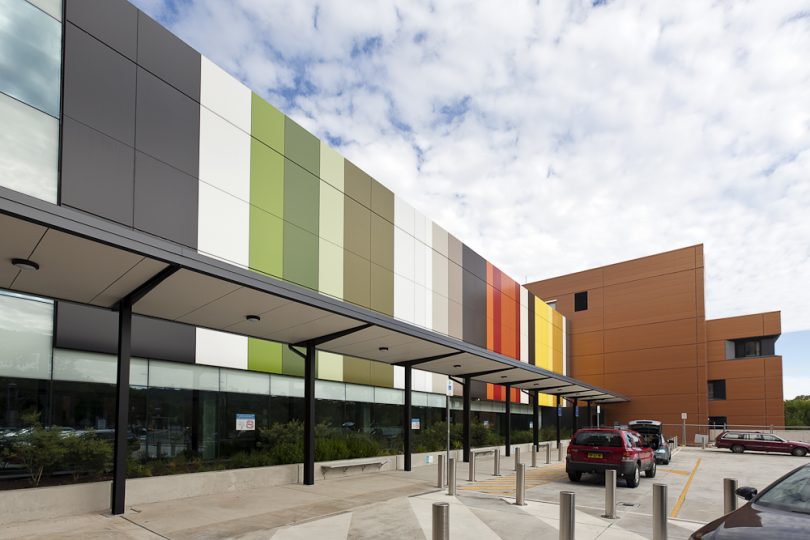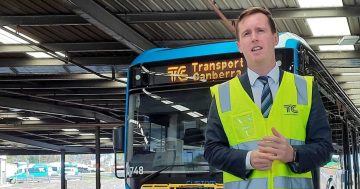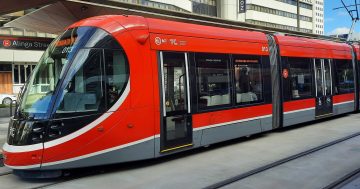
Transport Minister Chris Steel outside the City light rail terminus. He has had to add the MyWay replacement to a growing list of delayed projects. Photo: File.
It can’t be easy for governments in this time of COVID-19 to keep the economy going and deliver the services and facilities we all expect.
Supply chain disruptions, uncertainty and competition for resources make for unpredictable timelines, and while money is being splashed around, governments are still keen to get the best value for their buck.
But not all delays can be laid at the feet of the pandemic or approvals processes and, in the end, governments have to own budget and timeline blowouts, and any broken promises along the way.
Only three months since Labor’s historic victory at the polls, aided by a new Greens ascendancy, the Barr Government is racking up a growing number of delays to projects, which the Canberra Liberals opposition says represents a breaking of faith with the electorate.
Construction of light rail Stage 2 is now unlikely to get underway until 2022 instead of this year, the Canberra Hospital expansion has had a very long gestation, and the Centenary Hospital for Women and Children expansion will take longer to complete, and now Canberra won’t get a replacement for the MyWay ticketing system until 2023.
Transport and City Services Minister Chris Steel called off negotiations with a provider when it became clear that what was on offer was going to cost too much, or in government-speak, was not going to be value for money.
He wants a new system to provide flexible payment options, such as a credit card or mobile phone, and include a real-time app for passengers to track services and plan their journey.
And the right tech at the right price.

The Centenary Hospital in 2017: expansion completion pushed back to 2023.
The government went to the market in 2017 and 2018 but rejected the proposals, opting for a preferred provider, but that has not borne fruit.
Details of the procurement process are deemed commercial in confidence, so we do not know what kind of system and money the government has been talking about.
It’s a dynamic space, and a lot can change quickly, but eventually, a decision will have to be made.
Mr Steel is also grappling with light rail Stage 2, a much more complex project than the first one that faces many hurdles, and the associated interchange and CIT project in Woden.
In Health, the Centenary Hospital expansion, needed because the first iteration was not able to meet demand, was due to be completed this year but that has been pushed back to the back end of 2023. The Canberra Hospital expansion, formerly known as SPIRE, is due to finally get underway this year and be completed by 2024, coincidentally an election year.
These are big projects, and the government will argue that it’s more important to get it right than doing it quickly and that the Opposition is being churlish sniping about matters that might be out of its control.
But any Opposition worth its salt would point out what is looking like a pattern of missed milestones and failed commitments.
It’s up to the government to stay on top of its projects and keep the public informed about their progress, and not make promises it can’t keep.
It can hardly be surprised if its opponents point out the obvious.
Mr Steel and Health Minister Rachel Stephen-Smith, two of the government’s rising stars, have carriage between them most of the ACT’s significant public works, on which rest their careers and the success of the Barr Government.
Despite the Labor-Green coalition’s tight grip on power, a habitual disrespect for delivery targets will wear thin with voters.





















